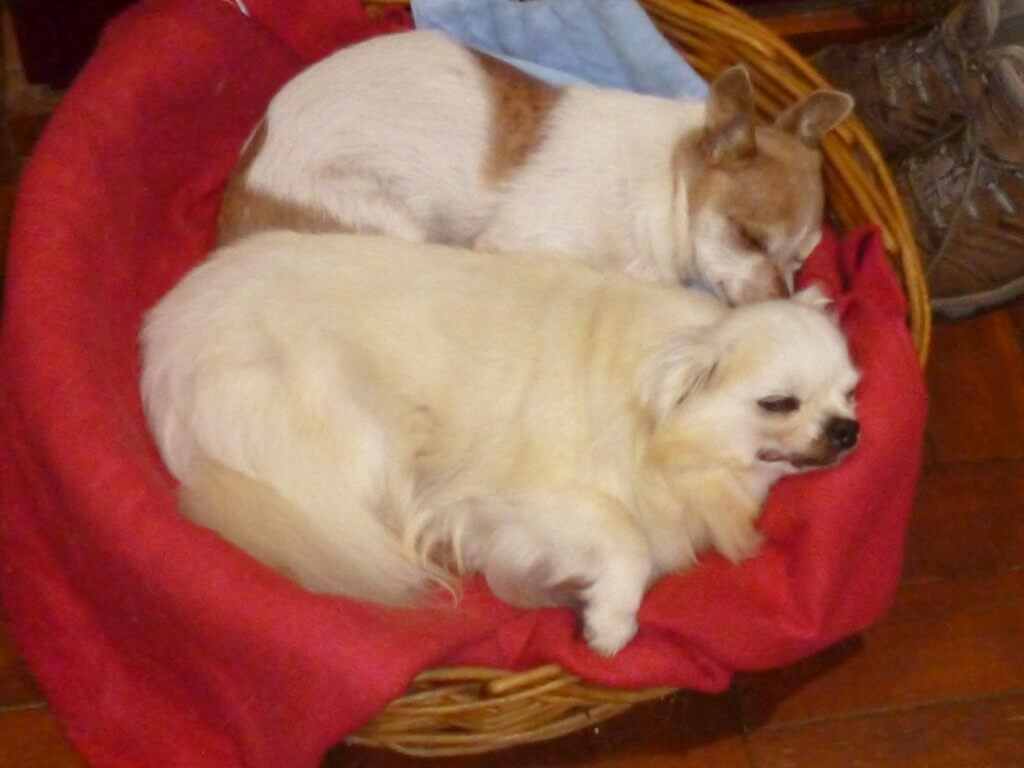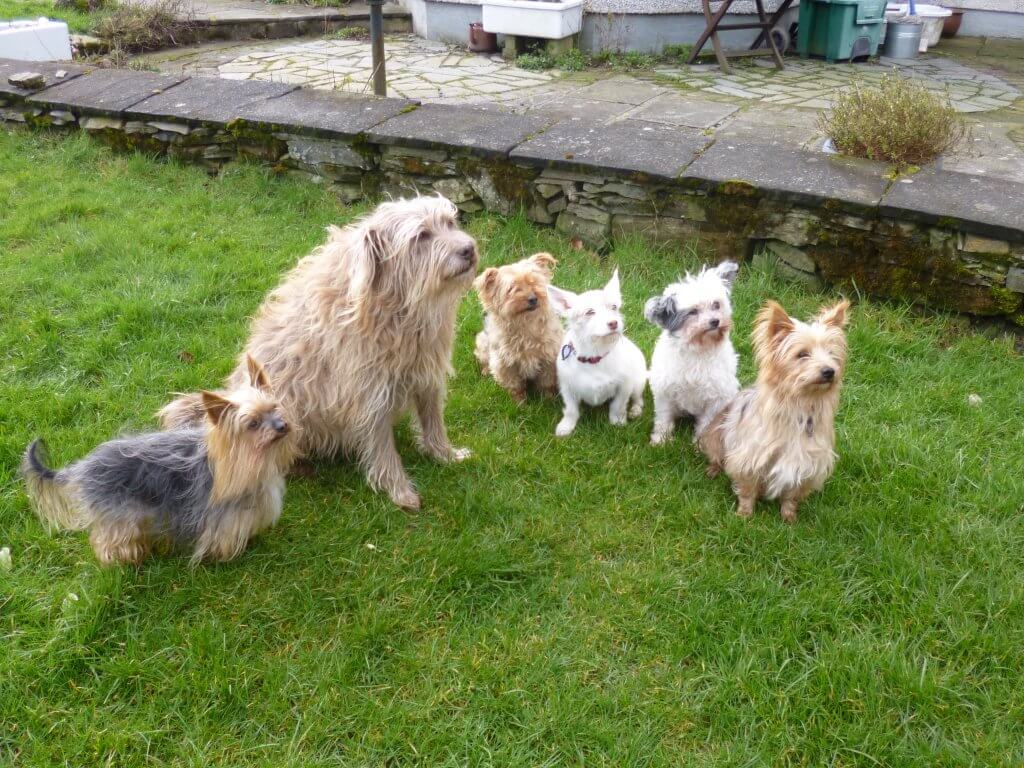“You don’t have to give up your life because of PH”
Pamela Bayley has dedicated her life to dogs, and pulmonary hypertension hasn’t stopped her from enjoying them. She wrote this article to share her story of adjustment, prioritising, and how her furry friends have helped her through the bad times.
“Dogs have always been a part of my life. I was born in Derby and when I was a baby my mum would take me for a walk in my very large pram with our Yorkshire Terrier, Vicky. Stopping at the local shop she would park me outside (you could do that in those days!) and put Vicky in the end of the pram knowing I would be protected while she shopped. I have loved that breed ever since.
I cannot remember a time when our family did not have a dog. They were usually ‘cast-offs’ from other people, and I have carried on the tradition.
My four-legged family
My husband and I moved 30 years ago to live somewhere with a field, taking five dogs with us, and we have never had less than that number. The most we have had was ten, and over these decades we have fostered or adopted from local rescue centres. For the last 14 years it’s been from our local RSPCA.
I seem to end up with the old ones no one wants, or ones that have ‘issues’! Sometimes if they are old, they are only with us a couple of years. Others are with us longer, but if I started on their stories, I’d never finish this article!
I have also helped to run a local dog club for the past 25 years, instructing the puppy class. We run eight classes over two nights and are very busy.
For the last 15 years I have also been teaching fun agility for our club members in our small paddock at home. It’s lovely in summer but not so much in winter. Recently I have cut my classes from four or five per week down to two because my PH prevents me from standing out in the cold too much.
Getting my diagnosis
So, now we come to the PH bit! Around 12 years ago when I retired, I noticed my breathing was not quite right. I have always loved walking, especially with my dogs, and realised I was getting breathless going up hills. As Wales – where I live – is not known for being flat, this became a bit of a problem! I had to plan my routes, so they were not all up or down.
As it got worse, I stopped walking with friends as I felt embarrassed because I was slowing them down. Shopping became a problem; I learnt to park near the trolley park so I could take one in with me and not have far to walk to the car after. I decided it was time to go to my local doctor.
After two years of telling him it was not COPD or Emphysema, and that the inhaler he gave me was not working for the asthma I hadn’t got, he eventually referred me to the chest clinic at my local hospital. By then I was walking with a stick, managing about one mile very slowly.
My dogs were my life-savers during this time; I think I would have given up if I hadn’t had them. They didn’t care how far we went or how long it took, as long as they went out. I struggled on for them.
Fortunately, the consultant realised after x-rays and blood tests that something was not quite right and referred me to a specialist centre. To cut a long story short, I ended up spending a day there on my own, having lots of tests, and a long chat at the end of the day revealed that I had pulmonary hypertension. I was given lots of verbal information as well as books and sent home with a bag full of tablets.
Adapting to life with PH
The meds had an almost instant effect on my breathing, but it took me a lot longer to get my head round all the information. I have never been a ‘pill popper’ and I found it hard taking tablets at a regular time each day. If I went out, I had to remember to take them with me. I’m more organised now but it took a long time to sort myself out.
Apart from a few friends and family I didn’t tell anyone about the PH, I just set about getting myself and my dogs fitter. We gradually lengthened our walks, still going slowly – especially up the hills – but you do see more of the scenery when you have to stop to get your breath!
Three years on I walk at least two miles each day, sometimes four, and very occasionally five or six. I usually walk in the mornings as I have more energy and then I rest for at least one hour at lunch, sometimes longer. My dogs enjoy this routine, and then we have a short walk around 3pm. The meds have enabled me to carry on with instructing my classes at the dog club – although I do get very tired and I am in the process of handing over some of the responsibilities to the younger people.
Because I felt ‘better’ thanks to the meds, I initially thought I could do all the things in a day that I used to. Gradually I’ve realised I have to ‘prioritise’ (a very popular word!). Dogs and I are most important – does it matter if there is a bit of fluff or dog hair floating round the kitchen floor? No, it doesn’t! My mop only gets an outing when I have the energy and my dusters are collecting dust in the cupboard.
We have eight dogs at the moment, four who are very elderly and need very little exercise. In fact, one sleeps under a blanket most of the time and only comes out for dinner and a wee! The other four go walking with us to the beach or the woods.
I am doing the things I enjoy, getting out in the fresh air with the dogs and meeting people when we’re out. It’s amazing how many people will stop and chat if you’ve got a dog, but they walk by you if you haven’t.
I have always been a busy person and find PH quite frustrating, but you don’t have to give up your life because of it, you just need to adjust. My attitude now is that I can do things, they just may take longer. I may be tired, but I can still do it.”
- Do you have an animal that helps you with your PH? We’d love to hear your stories – and see your photos too! Please email media@phauk.org


















